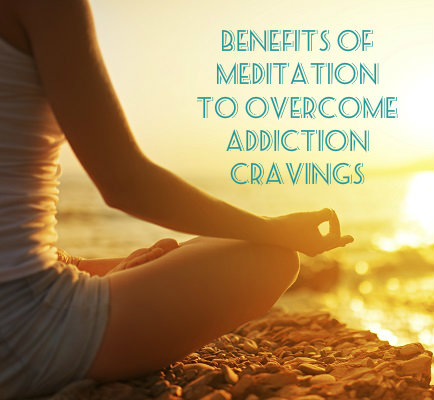Most people recovering from an addiction to an opioid drug or medication will experience a relapse fairly early in the treatment process. Two key factors in the onset of a relapse are the presence of continuing cravings or urges for opioid use and the onset of withdrawal symptoms after initial opioid detoxification.
In a study slated for publication in February 2015 in the journal Addictive Behaviors, a team of American researchers looked at the ways in which cravings and withdrawal symptoms impact the relapse risks for any given person recovering from prescription opioid addiction.
Opioid Cravings
All people dealing with opioid drug or medication addiction have longstanding chemical changes in their brain function that make them physically dependent on the continued intake of some form of opioid substance.
 Opioid cravings are essentially unconscious and conscious signals sent by the brain as a reminder of the established need to maintain at least a minimum level of opioid intake. Conscious cravings may manifest as clearly articulated thoughts supporting immediate opioid consumption or opioid consumption in the near future.
Opioid cravings are essentially unconscious and conscious signals sent by the brain as a reminder of the established need to maintain at least a minimum level of opioid intake. Conscious cravings may manifest as clearly articulated thoughts supporting immediate opioid consumption or opioid consumption in the near future.
Conversely, unconscious cravings may manifest as unarticulated urges for opioid intake. Conscious and unconscious cravings for the use of opioids or any other substance commonly stem from exposure to drug cues.
These cues are reminders of the actions commonly undertaken during episodes of substance use, the thoughts or feelings associated with substance use or the circumstances in which substance use typically occurs.
A strong drug cue can support a rapid escalation of drug cravings, and thereby steeply boost the short-term odds of drug use. The presence of opioid cravings is a diagnosable symptom of opioid use disorder (opioid abuse/addiction).
Opioid Withdrawal
Withdrawal is a second reinforcer used by the dependent/addicted brain to ensure the continued consumption of any given substance. It occurs when the levels of that substance fall below the levels required by the currently established conditions of addiction.
Opioid Withdrawal Symptoms
Specific symptoms of opioid withdrawal include:
- sleeplessness
- achy muscles
- an unusually anxious or agitated mental state
- excessive sweat production
- nausea
- vomiting
- pupil dilation
- diarrhea
- cramping in the stomach or abdomen
Unlike some forms of withdrawal (e.g., alcohol withdrawal), opioid withdrawal has no potential to trigger fatal changes in body function. However, affected individuals commonly feel uncomfortable enough to resume opioid intake. Withdrawal symptoms are usually most prominent during initial opioid detoxification. Along with opioid cravings and a range of other symptoms, doctors use the presence of withdrawal symptoms to help diagnose the presence of opioid use disorder.
Impact On Opioid Relapse Rates statistics
In the study scheduled for publication in Addictive Behaviors, researchers from the University of Texas Medical School at Houston, the University of Texas Health Science Center, the University of Texas Southwestern Medical Center and Harvard-affiliated McLean Hospital used information from a project called the Prescription Opioid Addiction Treatment Study to help determine exactly how opioid cravings and opioid withdrawal work together to increase the odds that any given person in recovery will relapse back into uncontrolled opioid use.
A total of 653 people dependent on or addicted to opioid medications took part in the study. All of these people received a commonly used medication, called buprenorphine/naloxone, that’s specifically designed to reduce the risks for relapse in people affected by opioid addiction.
The researchers concluded that there were four distinct groups of people in the larger pool of study participants: people with high levels of opioid craving and opioid withdrawal, people with moderate or intermediate levels of opioid craving and opioid withdrawal, people who transitioned from high levels of craving and withdrawal to low levels of craving and withdrawal, and people who maintained low levels of craving and withdrawal.
The researchers also concluded that three groups of participants were least likely to relapse back into uncontrolled opioid use: people who experienced a reduction in their craving and withdrawal levels over time, people who initially experienced low levels of craving and withdrawal, and people who responded well to the craving- and withdrawal-reducing effects of buprenorphine/naloxone.
The study’s authors believe that their work increases the level of understanding about those individuals most likely to rapidly relapse after entering treatment for prescription opioid dependence/addiction. They also believe that their work underscores the importance of paying close attention to changing craving and withdrawal symptoms during the recovery process.
Finally, the authors believe their work may increase the future ability to identify individualized treatment patterns that decrease each affected person’s chances of experiencing an early opioid relapse.
21 Oct 2014
Using Meditation To Combat Addiction Cravings?
More people these days are turning to alternatives in medicine and wellness. Many of these alternatives come from Eastern cultures. Addiction is one disease that can be treated successfully with a variety of techniques from traditional Western medicine, holistic practices, and Eastern philosophy and spirituality. If you are a recovering addict and you battle cravings, consider borrowing from the Eastern tradition. Meditation is an ancient practice with usefulness in modern times. Practicing medication can reduce your stress levels, make you more aware of your mind and body and help you resist the urge to relapse.
What Is Meditation?
 Meditation is a practice that people have been using for millennia but has only recently been recognized by modern medical practitioners and researchers. The original purpose of meditation was to connect with the spiritual and mystical life forces. Many people today use the practice to relax and relieve symptoms of stress.
Meditation is a practice that people have been using for millennia but has only recently been recognized by modern medical practitioners and researchers. The original purpose of meditation was to connect with the spiritual and mystical life forces. Many people today use the practice to relax and relieve symptoms of stress.
In meditation you focus your attention and your thoughts on the present moment. This is achieved by focusing on your breathing, an incantation or an image. You ignore and quiet all of the thoughts that normally flood your mind throughout the day and enter a state of deep relaxation.
The Benefits Of Meditation For Recovering Addicts
The immediate and general benefits of meditating are an overall sense of well-being, calmness and relaxation, as well as a release of stress. The effects carry on beyond the meditation exercise.
Physical Benefits
Medical research has shown that meditation can help to manage symptoms of illnesses including:
- heart disease
- asthma
- insomnia
- pain
- high blood pressure
- cancer and anxiety disorders
Emotional And Mental Benefits
In addition to the physical benefits, meditation is also known to produce positive emotional outcomes and this is where the exercise can really help you manage your drug or alcohol cravings. Meditating can help you gain perspective on difficult situations. If you have an intense craving, stop to meditate. It will help you realize that your cravings will pass and that you need not give into them.
Meditation also helps you to improve your sense of self-awareness. Another word for this is mindfulness. If you can become more aware of what your mind and body are telling you, you can better forestall your cravings. You may realize, for instance, that stress or worry about something at work is driving your craving. If you solve that problem, your craving will lessen.
Meditation is a powerful tool for stress management. Stress is a big trigger for relapse. If you can learn how to use tools, like meditation, to manage your stress, you will be more successful at resisting the urge to use again. In addition to stress management, meditating reduces all negative emotions. There are many negative feelings that can trigger a relapse: anxiety, depression, fear, loneliness. If you can reduce these through meditation, you can reduce your cravings.
Meditation is a practice that is open to anyone. It requires no special skills, no equipment and no instruction. Working with someone experienced in meditation is not a bad idea if you feel you need guidance, but it isn’t necessary. Meditation can be as simple as sitting comfortably in a quiet place and focusing on your breathing. Also realize that you will get more adept at meditating with time and practice. Don’t expect to be able to fully relax and block out external factors on your first try. Give it time.
Meditation is not a cure for addiction or for anything, but it is a useful tool. As an addict in recovery you need all the tools you can get to help you avoid a relapse. Cravings are powerful and intense, but meditation can help you fight them. Give it a try and see how much better you feel in general.
Discover The Benefits Of Holistic Drug Rehab
01 May 2012
Movie Clips Help Ease Drug Cravings
A new study reveals that watching just a five minute video may help reverse memories of former drug use with past heroin addicts. It could also help ease cravings and the process is quite simple, says David Epstein with the National Institute on Drug Abuse, and co author of the study.
Read More
A medication-free method for helping people retain their drug recovery and resist cravings may be on the verge of becoming part of treatment programs, and it’s based on interventions to behavior that are tied to memories of past drug use.


